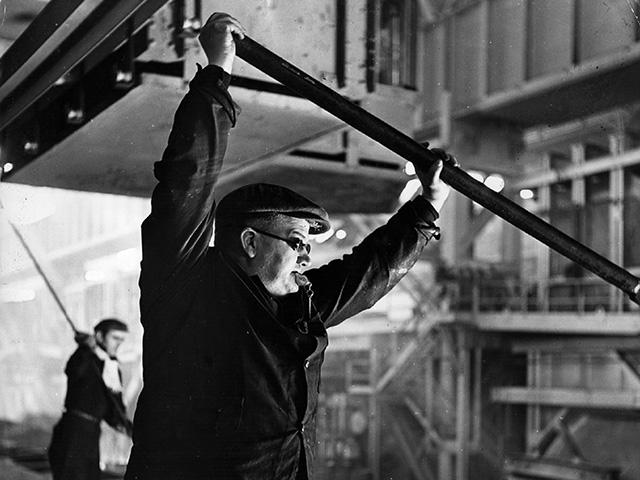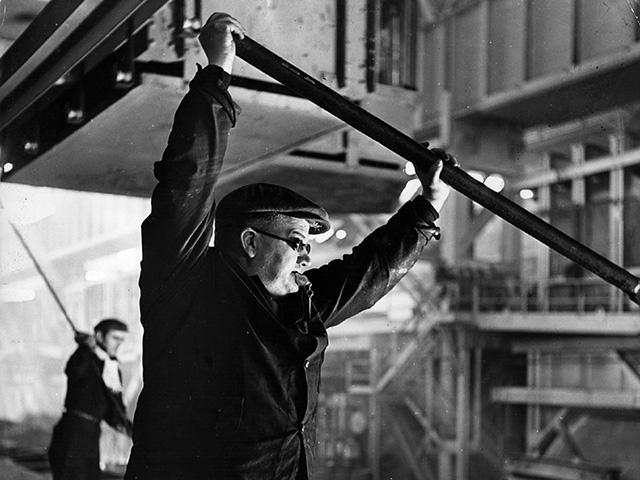An Urban's Rural View
'Pretty Soon, They're Going To Be Taking Us Over'
If glittering history is the measure, few American companies can rival United States Steel. Legendary names like Andrew Carnegie and J.P. Morgan were involved in its creation 120-plus years ago. It was once the world's most valuable company. It was once the world's largest steelmaker.
Today the Pittsburgh-based company doesn't rank in the world's top 20 steel-producing companies. Six of the top 10 are Chinese. All but one are Asian. (https://www.reuters.com/…)
U.S. Steel isn't even America's largest steelmaker -- that would be Nucor Corporation. U.S. Steel's market value is less than 1% of the world's most valuable company, Apple, market capitalization of $2.9 trillion.
Still, between its illustrious history and its nationality-invoking name, U.S. Steel is an American icon, like Ford or Coca-Cola or McDonald's. Perhaps that's why many Americans were shocked by the announcement that U.S. Steel agreed to be acquired by Nippon Steel, Japan's largest steelmaker and the world's No. 4.
Among those most shocked were the United Steelworkers Union and Pennsylvania Sen. John Fetterman. He called the sale "absolutely outrageous" and vowed to fight it.
Yet as shocking as a Japanese bid for U.S. Steel might seem, it's not like the American steel industry has never known foreign or even Asian ownership. A Luxembourg-based company with Indian roots has owned steelmakers in the U.S.
Korean and Japanese steelmakers produce steel in the U.S. in joint ventures. Nippon Steel itself acquired a small interest in Wheeling-Pittsburgh Steel in 1984.
P[L1] D[0x0] M[300x250] OOP[F] ADUNIT[] T[]
It's been a long time -- at least 50 years -- since this country was home to the world's leading steel industry. In the 1950s and '60s, American steel companies failed to invest in new steelmaking technology even though their competitors overseas were investing heavily. Long dominant in their own market, the Americans didn't take the foreign steelmakers seriously.
Soon those competitors -- led then by the Japanese -- were running rings around the Americans. Thanks to their more advanced technology, better labor relations and supportive governments, the foreigners made higher-quality steel at lower costs. Their steel mills spewed out less pollution, too.
In April of 1981, the Wall Street Journal ran a three-part front-page series that I co-authored explaining how the Japanese steelmakers had achieved their dominance. That they'd achieved it nobody questioned.
"They're better, that's all there is to it," an American steel-factory manager said. "Their quality and cost are no accident and no figment of the imagination. We ignore them only at our peril."
The shocked reaction to the proposed acquisition brings back memories of the late 1980s. American angst over Japanese investment came to a head then as Japanese companies started acquiring American icons. In 1988 Japan's Bridgestone acquired Firestone Tire. In 1989 Mitsubishi Estate bought a controlling interest in New York's Rockefeller Center. Sony bought Columbia Pictures.
For a 1990 story, the Journal conducted a poll that had 69% of Americans saying the Japanese were investing too much in the U.S. My co-author and I quoted a waitress in North Platte, Nebraska, who spoke for many Americans: "Pretty soon, they're going to be taking us over."
They didn't. Japan's financial bubble burst. Japanese companies pulled back. For years, even decades, Americans paid little attention to Japanese investments. It helped that the Japanese stayed away from American icons.
An acquisition of an American icon by an American company would have evoked more nostalgia than shock, and American steelmaker Cleveland-Cliffs had been interested. But its $7.3 billion bid, which U.S. Steel rejected, was half Nippon Steel's eventual $14 billion offer.
The steelworkers union liked the Cleveland-Cliffs bid. The union represents workers at both companies, and Cleveland-Cliffs promised no union members would lose their jobs. Nippon Steel said it would respect the union's contracts at U.S. steel but didn't make job-protection promises.
As the government's inter-agency Committee on Foreign Investment in the United States reviews the acquisition, it could condition approval on promises to protect workers.
Still, jobs will be only one of the considerations in the review. National security is the overarching issue. Congressmen are pressing for a ruling that national security is at risk. Missouri Republican Sen. Josh Hawley has questioned whether the Biden administration has the "guts" to block the deal.
U.S. agriculture is no stranger to concerns about foreign investment. The Senate voted last July to ban farmland purchases by China, Russia, Iran and North Korea. Those countries, however, are U.S. rivals or even adversaries.
Japan has long been America's foremost Asian ally. With an increasingly aggressive China as a neighbor, the Japanese have been stepping up their military cooperation with the U.S. Japan recently abandoned a decades-old policy of not exporting armaments and promised to help the U.S. replenish its supply of Patriot missiles.
Nippon Steel's Harvard-educated CEO suggests the acquisition would strengthen, not weaken, U.S. national security. In creating the world's second-largest steel company, it would, he says, give birth to a free-world champion with the heft to take on the Chinese. Nippon Steel says U.S. Steel's name would continue to be used.
If politics weren't involved, CFIUS would likely approve the deal. But politics are involved, and in an election year, CFIUS won't want to stir the pot. Don't be surprised, then, if a ruling on this iconic company's future has to wait until after the presidential election.
Urban Lehner can be reached at urbanize@gmail.com
(c) Copyright 2024 DTN, LLC. All rights reserved.






Comments
To comment, please Log In or Join our Community .